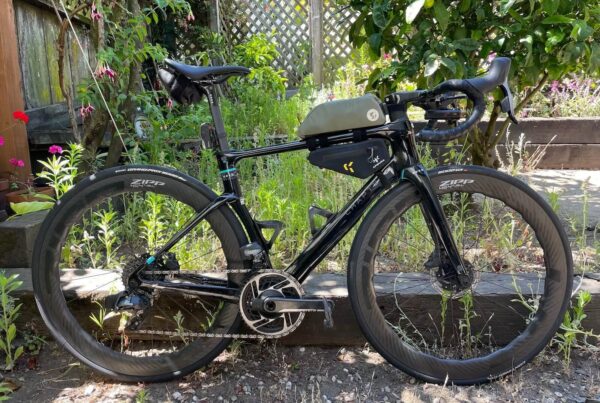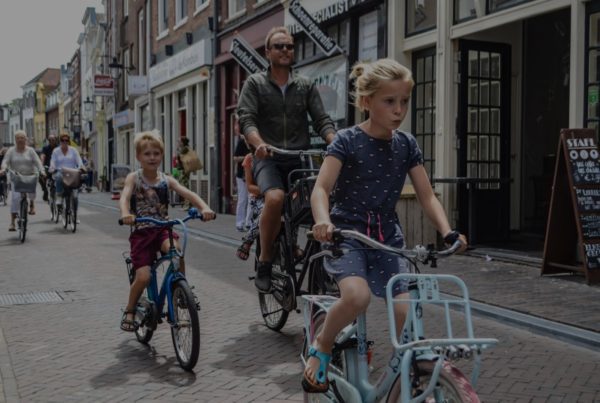“They’re at it again.”
That’s what I thought when I heard about the latest cycling ban, this time in Hull, Wisconsin.
Every now and then, some town gets a “ban bikes” bug. This issue has come up in Jupiter Island, Florida, Crawford and Hardin Counties in Iowa, and Black Hawk, Colorado. Usually, this is in response to complaints about everything from conflicts between motorists and cyclists, to cyclists not obeying the law, to cyclists not sharing the road.
So let’s talk about that for a minute. Yes, as every cyclist knows from personal experience, there is conflict with some motorists over our right to the road. And yes, many cyclists pick and choose which laws they will observe. So do most motorists. You think cyclists don’t stop at stop signs? Watch a stop sign sometime and see how motorists fail to make a legal stop. Worse, many motorists just don’t know what the law is regarding cyclists, and often believe that perfectly legal behavior—for example, riding on the road—is illegal. So when authorities hear from an angry motorist that a cyclist was “breaking the law,” are they hearing about something that is genuinely illegal, like blowing through a stop sign? Or are they hearing about something else, like “a cyclist was riding on the road”? It’s an important distinction. And even if they’re hearing correctly—that a cyclist was breaking the law—let’s keep in mind that virtually every motorist breaks the traffic laws too, and there are many more motorists than cyclists on the roads. This should not be seen as a justification for cyclists breaking the law. Instead, it’s a reminder that when we hear complaints about “cyclists breaking the law,” we need to keep some perspective about the larger picture. If one cyclist ignored as stop sign in town, how many motorists ignored the speed limit that same day? And why aren’t town authorities hearing complaints about all of that illegal behavior?
Anyway, as I said, when I heard about the Hull, Wisconsin “bike ban,” my first thought was “they’re at it again”—and this time, in my “home” state.
Well, as it turns out, not exactly. Initially, it was reported that the tow of Hull planned to enact an ordinance that would generally ban group cycling and walking within town limits. Cycling, running, and walking groups would only be allowed within town if they registered their trips in advance. This news alarmed cyclists far and wide. The Bicycle Federation of Wisconsin was no exception, so they got on the phone to Hull right away. And as the Bicycle Federation reports, Hull was not actually planning to ban bikes. What had actually happened was the town organized a Public Safety Committee to study road safety. The problem? Town residents had complained about a number of safety issues, including speeding motorists, cyclists who blow through stop signs, and groups of runners who take up entire lanes of the narrow town road. So the Public Safety Committee convened, and decided that the town needed local traffic ordinances to help them enforce state laws—and in order to draft a local ordinance, they needed to know what the state laws are. So the Committee asked the Town attorney to report on the relevant state laws, and when they read the report, the Committee members discovered that in addition to allowing cities to designate bike lanes and routes within town, Wisconsin state law also allows them to prohibit bicycles and pedestrians. So, when the Public Safety Committee drafted a local ordinance, they inserted all of the language from the relevant state laws into their first draft, including the language that allows local authorities to prohibit bicycles and pedestrians within town limits.
But as the Bicycle Federation reports, Hull did not actually intend to ban bikes, or to require permits. Instead, the focus of the town is to improve safety and compliance with state traffic laws by everybody—motorists, cyclists, and pedestrians. To that end, the town ordinance will be “in complete compliance with all state laws”—but the local ordinance does not include a ban on bikes or pedestrians. As Town Chairman John Holdridge explained, his wife bikes daily within town, and both he and his wife enjoy daily walks in town, and the town does not intend to prohibit cycling or walking within town limits. Instead, the town will be focusing on three areas—traffic calming for motorists, stop sign and lane position compliance for cyclists, and getting pedestrians to walk opposite the direction of traffic.
So that’s the good news.
But it’s not all good news. The bad news is this: As this story made clear, there’s a law on the books in Wisconsin that allows local authorities to prohibit cycling on roads within town limits. So while the Town of Hull clearly has no interest in banning bikes, any town in Wisconsin that does want to ban bikes has the legal authority to do so. This is deeply disturbing. In most instances of towns attempting to do this, it is clear that the town is acting outside of its authority under state law. In Wisconsin, towns wishing to ban bikes are authorized by the state to do so. This is a problem that is not going to go away. If we want to stop any future bike bans in Wisconsin, the only real way to fight them is to change the state law that allows towns to ban bikes. That might be a tall order in Wisconsin’s current political climate, but the sooner the law is changed, the sooner we can prevent a real bike ban from taking effect in Wisconsin.
By Bob Mionske




Bob, buddy, you need an editor. I’m available. 🙂
Fourth paragraph, last sentence; a cyclist might ignore “a” stop sign, but I’m not sure what he would be doing if he ignored “as” stop sign.
Sixth paragraph, first line, town has an n at the end.
Just being nitpicky. I read your posts on facebook every day.
And you won’t remember me, but we met at a Wendy’s during the 1990 Tour of Texas. I was the manager/bottle washer for the women’s Team Hammerhead.
Keep up the good work.
“lane position compliance”? You mean harassing cyclists for using lane control in unsharable-width lanes? Ticketing cyclists for failing to ride in the gutter? That’s categorized as “good news”?
What you describe would not be consistent with Wisconsin law, Mike:
346.80 Riding bicycle or electric personal assistive mobility device on roadway.
(1)In this section, “substandard width lane” means a lane that is too narrow for a bicycle or electric personal assistive mobility device and a motor vehicle to travel safely side by side within the lane.
(2)
(a) Any person operating a bicycle or electric personal assistive mobility device upon a roadway at less than the normal speed of traffic at the time and place and under the conditions then existing shall ride as close as practicable to the right-hand edge or curb of the unobstructed traveled roadway, including operators who are riding 2 or more abreast where permitted under sub. (3), except:
1. When overtaking and passing another vehicle proceeding in the same direction.
2. When preparing for a left turn or U-turn at an intersection or a left turn into a private road or driveway.
3. When reasonably necessary to avoid unsafe conditions, including fixed or moving objects, parked or moving vehicles, pedestrians, animals, surface hazards or substandard width lanes that make it unsafe to ride along the right-hand edge or curb.
I looked at Hull’s streets in Google Maps. Their lanes are “substandard width” as defined in Wisconsin Law. So “lane position compliance” is moot in Hull. By making such “compliance” a priority, they’re essentially telling the police to ticket cyclists for a non-offense.
The complaints Hull has received in regards to cyclists involve cyclists riding on the wrong side of the road, and cyclists ignoring stop signs. The Town Chairman also mentioned getting compliance with following the law regarding riding single or double file.